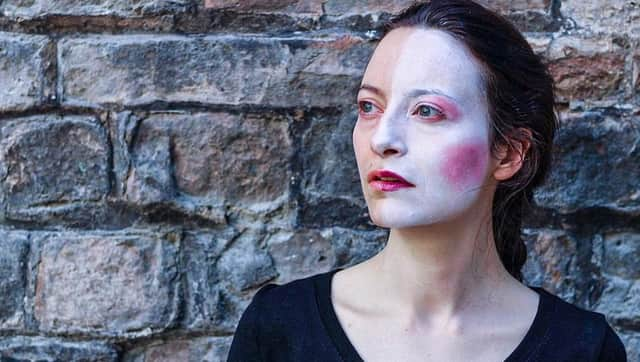Fringe theatre reviews: How Do You Know You Are Home? | Aalaapi | Mary Stuart


When the Edinburgh International Festival launched in 1947, music critic Neville Cardus wrote about Scotland's cultural influence on Europe. He connected David Hume to Immanuel Kant, Walter Scott to Johann Wolfgang von Goethe and Scottish folk song to Ludwig van Beethoven. Edinburgh, he wrote, had again picked up the "links of culture… joining Scotland with the intellectual governance of the world". Right from the start, in other words, internationalism has been central to the Festival and, in turn, the Fringe.You'd think after the restrictions of the Covid pandemic such global links would be jeopardised. With so few foreign companies making the journey here, we have little chance to encounter the outside world. But that's just in real life. The introduction of an online Fringe has made it easier than ever for foreign theatre-makers to be heard. Scroll through the programme and you'll see digital work from Korea, South Africa, Australia and all points in between.Aliki Tsakoumi even manages to represent two countries. She is a Greek expat living in Sweden and her solo show, How Do You Know You Are Home? ( **), reflects a problem any migrant has in trying to figure out where their identity lies. Is it the place they have left or the place they have moved to? Like all artists, Tsakoumi yearns for connection, but finds a stronger relationship with an audience when she's on stage than she does wandering the streets as a lonely outsider. The show has promise, but is an awkward blend of stand-up and straight theatre that is at its best when it stops trying to be funny.People don't even need to travel abroad to feel like strangers. That's the feeling you get in Aalaapi (****) by La Messe Basse, a beguiling piece of documentary theatre from northern Quebec. Driven by sound as much as visuals, it is a collage of Inuit voices, describing their daily lives. Used to landscapes of ice and tundra, they report with alarm from their rare journeys to the cities, with all the unfamiliar noise and anonymity.What we see are two women in a kitchen framed liked a sepia photograph on the middle of a stage. Around them are projected maps of vast northern terrain, but more than anything we're conscious of the voices they are listening to on the radio, telling the stories of ordinary lives in Inuktitut, French and English. The word aalaapi translates as "be silent because what we're hearing is beautiful", a perfect description for this sensory piece of theatre. Directed by Laurence Dauphinais, it sets its own pace, gives voice to the marginalised and opens our eyes and ears to lives far from our own.For a brilliant dramatisation of a culture clash, look no further than Mary Stuart (****), a thrilling adaptation of the Schiller play by the multinational Summertide Company. It begins in jokey style as a gauche American actor played by Pauline Prévost discovers her co-star, an icily dry Marie Colombe Lobrichon, is also expecting to play Elizabeth I and not, as she thought, Mary Queen of Scots.In Sean Hardy's production, they convincingly – and hilariously – capture the contrast between brash American and refined European, but just as it looks as though the language barrier will wreck the project, things take a serious turn. Suddenly, the tension between the actors morphs into the conflict between the queens. A knockabout comedy becomes an intense tragedy of feminism and realpolitik. You need a decent grasp of French and/or Schiller to keep up, but it's worth the effort.Mary Stuart, French Institute in Scotland, Fringe Player – Fringe Online; Aalaapi, Assembly Showcatcher (online); How Do You Know You Are Home?, Fringe Player – Fringe Online.
A message from the Editor:
Thank you for reading this article. We're more reliant on your support than ever as the shift in consumer habits brought about by coronavirus impacts our advertisers.
If you haven't already, please consider supporting our trusted, fact-checked journalism by taking out a digital subscription at https://www.scotsman.com/subscriptions